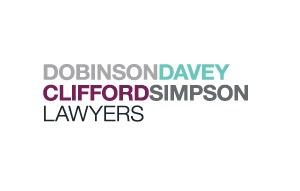
It is not uncommon in small business arrangements for spouses or de facto partners to be directors and/or shareholders of companies through which the business is operated. Other entities may be established, including discretionary family trusts and Unit Trusts.
Commonly one of the spouses or de facto partners does not have an active involvement in the business. This is despite the fact that decisions made within the entities through which the business is conducted can have significant implications for everyone associated with them. This is the case even for beneficiaries of a discretionary trust who may receive distributions resulting in tax liabilities without realising this has occurred, or who may have loan accounts of which they are unaware. Importantly, directors of companies, whether they are actively involved in the business or not, have obligations at law, and a failure properly to discharge those obligations can have significant ramifications.
In the event of a breakdown in the relationship, the existence of complex business structures and, in particular, a spouse’s or de facto partner’s lack of knowledge about how they operate, creates complexity and cost in reaching a property settlement.
We recommend that parties who are being asked by their spouse or de facto partner to be a director, other officeholder, or shareholder of a company and/or to have a role in a discretionary family trust or Unit Trust, ensure that they understand at the outset what this may mean for them, and obtain legal advice along the way. Importantly, parties should ensure that they are provided with the documents which enable them (with advice) to assess and participate in the decisions that are being made, including Trust Deeds, Financial Statements, Tax returns and Distribution Schedules.
We also recommend that parties seek independent legal advice about the implications in the event of a breakdown of the relationship of the decisions that are being made.
It is absolutely vital that legal advice is sought as early as possible after a separation, and that your lawyer is provided with whatever documents in relation to the business structures that you have. If you do not have all the documents, your lawyer can assist you to obtain them through the disclosure process: you are entitled to financial documents in respect of any trust in which either of the parties is an appointor or trustee and any trust in which either of the parties or the children is a beneficiary, and any partnership, trust or company (except a public company) in which either of you has an interest. Nonetheless, there is no substitute for being properly informed along the way.
If you would like to make an appointment with one of our specialist lawyers for advice, please call us on (02) 6212 7600.

Alison Osmand is a Senior Associate of the firm 18 Kendall Lane, New Acton Canberra City ACT 2601 T: (02) 6212 7600 E: [email protected] www.ddcslawyers.com.au


